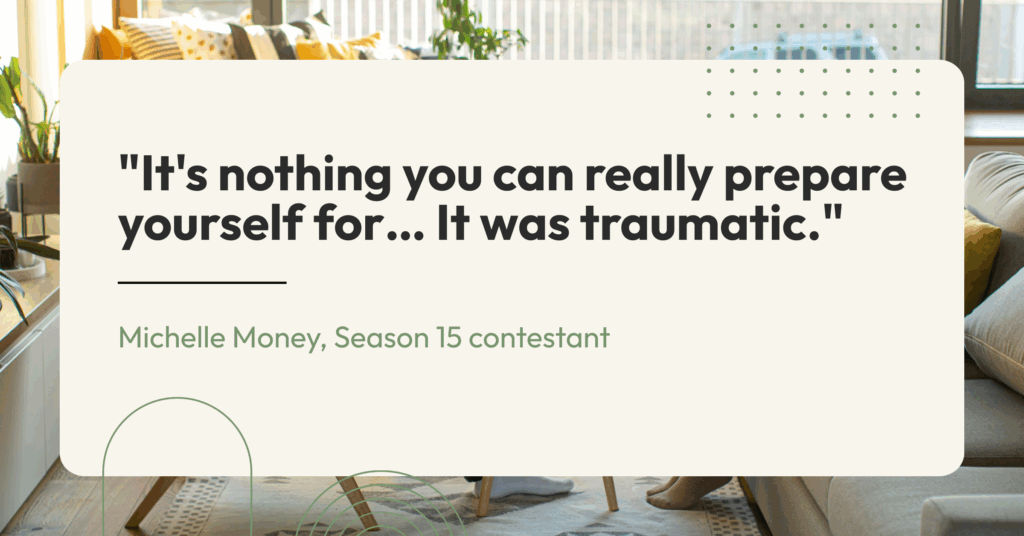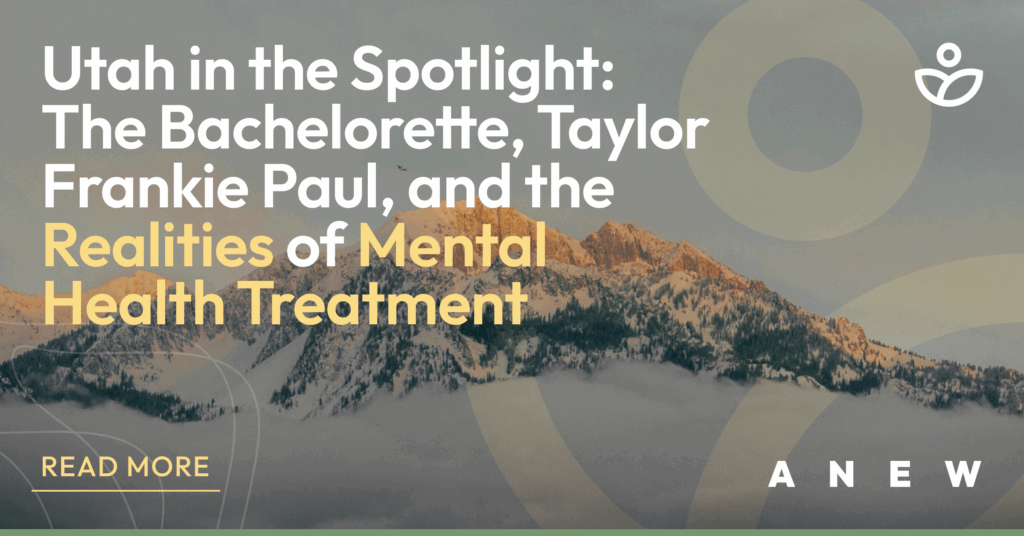Utah has long drawn attention for its natural beauty, innovation, and strong community values. But more recently, it’s also become a focal point in a national conversation about mental health, and the ways faith, fame, and healing intersect here like nowhere else. With The Bachelorette filming in Utah and TikTok star Taylor Frankie Paul’s turbulent journey through legal issues and motherhood under public scrutiny, the state is becoming a surprising case study in how fame, faith, and modern psychiatry collide.
But here’s the bigger story: Behind the reality TV drama and influencer gossip lies a very real struggle faced by thousands of Utahns. Anxiety, depression, postpartum disorders, and trauma don’t care about your Instagram following. And while headlines may sensationalize the symptoms, there’s still far too little conversation about what effective treatment actually looks like.
Let’s unpack what’s happening, as well as what really matters when it comes to mental health care in Utah.
A Cultural Pressure Cooker
Utah has long been characterized by its unique mix of cultural conservatism and progressive innovation. It’s the birthplace of multilevel marketing empires and startup unicorns, yet also home to one of the most religious and family-centric populations in the country. That contrast can create immense psychological strain, particularly for women.
Many Utah women, especially those in the influencer sphere like Taylor Frankie Paul, face competing pressures to be the perfect wife, mother, businesswoman, and beauty icon. Add to that the isolation of early motherhood, shame around seeking psychiatric help, and a community where mental health problems can sometimes be seen as a crisis of faith rather than a clinical condition, and you’ve got a recipe for unspoken mental health crises.
When the Cameras Leave, the Symptoms Stay
The Bachelorette filming in Utah might seem like a lighthearted diversion. But beneath the glitz of rose ceremonies and love triangles lies something more sobering. Several former contestants have publicly shared their post-show mental health struggles – from anxiety and depression to PTSD-like symptoms triggered by social media backlash.

Reality TV thrives on emotional extremes, but mental health recovery happens in the quiet, repetitive work of therapy sessions, medication trials, and community support. The dramatic peaks and valleys we see onscreen are not a realistic model for healing. In fact, they often reinforce harmful stereotypes: that trauma needs to look cinematic, or that healing should come quickly and completely by the end of the season.
Taylor Frankie Paul and the Complexity of Postpartum Struggles
Taylor Frankie Paul’s legal troubles and mental health disclosures have sparked both empathy and criticism. But for many women in Utah, especially mothers, her story feels painfully familiar. Behind the curated TikToks and viral scandals is a woman navigating postpartum depression, co-parenting stress, and public scrutiny all at once.
Postpartum depression (PPD) affects 1 in 7 mothers, yet nearly 50% of cases go undiagnosed. What makes Utah unique is how deeply faith, family expectations, and community reputation can complicate a mother’s willingness to ask for help.At clinics like Anew Therapy in Sandy, Utah, we see these dynamics daily. New moms arrive exhausted, ashamed, and scared. They don’t just want relief, they want permission to stop pretending everything is okay.

Breaking Down the Modern Mental Health Toolbox
Gone are the days when “getting help” meant six months of talk therapy and a bottle of Prozac. Utah clinics are now offering cutting-edge, evidence-based treatments that can jumpstart healing – especially when traditional methods have failed.
1. IM Ketamine Therapy
Ketamine works by enhancing neuroplasticity, essentially making the brain more flexible and open to positive change. Administered as a small intramuscular injection, patients often feel relief within hours or days. This treatment can be a game-changer for severe or treatment-resistant depression.
2. Spravato (Esketamine Nasal Spray)
FDA-approved and typically covered by insurance, Spravato offers the same glutamate-based benefits as ketamine but via a nasal spray. It’s a popular option for postpartum patients and those who prefer a less invasive route.
3. Transcranial Magnetic Stimulation (TMS)
TMS uses magnetic pulses to stimulate underactive brain regions. It’s non-invasive, drug-free, and especially effective for those who’ve tried multiple antidepressants without success. Many patients in Utah now use it alongside therapy for long-term, sustainable results.
These treatments aren’t miracle cures, but they offer real hope and faster relief than most people expect. And they’re backed by clinical research, not just influencer endorsements.
The Faith vs. Medicine Dilemma
In faith-centered communities like many found across Utah, the decision to seek psychiatric care can feel especially complex. Some individuals worry that needing therapy or medication might reflect a lack of spiritual strength – or be misunderstood by others that way. But in reality, faith and mental health treatment can work hand-in-hand, with many finding that spiritual support and clinical care together offer the strongest path to healing.
At Anew Therapy, we meet this concern with compassion and clarity. Depression isn’t a spiritual deficiency – it’s a neurochemical imbalance often triggered by stress, trauma, or hormonal shifts. Faith can be a source of resilience, but it should never be a barrier to receiving proper care.
So, What Should You Do If You’re Struggling?
Whether you’re a new mom, a reality TV fan, or someone who just can’t shake the feeling that something isn’t right, here’s what matters most:
Start with validation.
You’re not overreacting. Your pain is real, even if it doesn’t “look serious” to others.
Explore modern treatments.
If talk therapy and SSRIs haven’t worked, consider TMS, ketamine, or Spravato. These aren’t fringe options. They’re FDA-approved, often covered by insurance, and their effectiveness has been proven by an increasingly large body of medical research
Choose a provider who gets you.
Especially in Utah, finding a therapist or psychiatrist who understands the intersection of faith, culture, and womanhood can be critical. Many women prefer working with female clinicians for this exact reason.
The Takeaway
Utah may be trending for its reality TV cameos and social media scandals, but behind the filters and soundbites is a deeper, more important story: Women in Utah are finally speaking up about their mental health. And they deserve real support, not just likes or headlines.
If you’re navigating postpartum depression, anxiety, trauma, or just the weight of being a woman in today’s world, know this: Help isn’t just available. It’s evolving. And it might look very different than what you expected.Ready to explore modern mental health care? Start here with Anew Therapy.

Searching for the best mental health clinic in Utah? Anew Therapy offers expert care and proven results. Schedule your free intake appointment today.

